4. How to use Europass with your clients
Learning outcomes: Participants will be able to:
- advise different client groups about the relevant Europass tools for their needs
- support clients in developing their personal Europass profile, CV and cover letter, as needed
| Site: | Euroguidance |
| Course: | EUROPASS COURSE FOR GUIDANCE PRACTITIONERS |
| Book: | 4. How to use Europass with your clients |
| Printed by: | Visiteur anonyme |
| Date: | mercredi, 30 avril 2025, 7:15 |
Table of contents
Examples of the use of Europass: Which target audiences does it address?
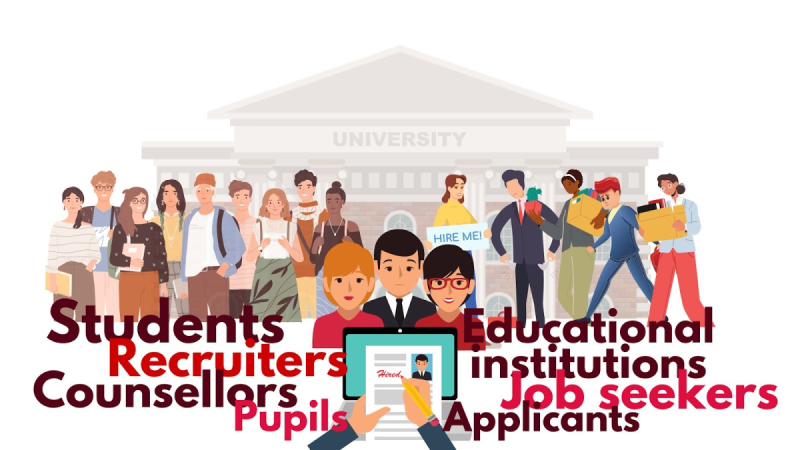 The new Europass portal is designed as a support tool for European citizens to present themselves to potential employers or educational institutions and actively engage in their continuous professional development by having access to relevant learning and working opportunities throughout Europe. Thanks to these aspects, Europass is a widely applicable tool suitable for many different user profiles. It can be used as a support tool when users apply for different study or volunteering opportunities, student practices, Erasmus+ mobilities and many more. It can also be used when users wish to compete for their first job or when they are transitioning from one job to another or moving from one country to another in search of interesting job or learning opportunities.
The new Europass portal is designed as a support tool for European citizens to present themselves to potential employers or educational institutions and actively engage in their continuous professional development by having access to relevant learning and working opportunities throughout Europe. Thanks to these aspects, Europass is a widely applicable tool suitable for many different user profiles. It can be used as a support tool when users apply for different study or volunteering opportunities, student practices, Erasmus+ mobilities and many more. It can also be used when users wish to compete for their first job or when they are transitioning from one job to another or moving from one country to another in search of interesting job or learning opportunities.
This makes Europass an important tool, not only for those who want to apply for jobs and educational opportunities, but also for guidance practitioners and their clients, as well as employers and educational institutions, who all need reliable tools and information to efficiently assess many different applicant profiles.
In the following sections we will explore how to approach and counsel different target groups and show them the benefits of using Europass, tailored to their own specific needs. Where possible, we will provide practical materials and case studies which can be used in day-to-day work.
Applicants
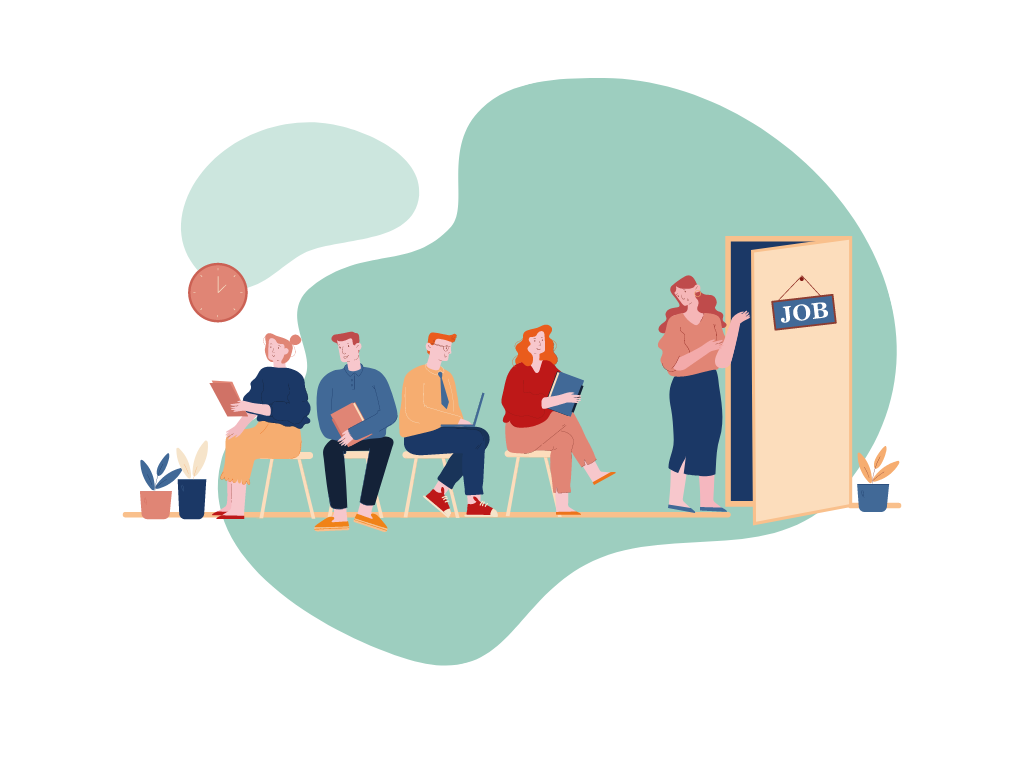 Since its introduction in 2004 Europass has grown into a recognisable European job search brand. The most popular tools among Europass users by far are the CV Creator and the Cover Letter Creator, and these two have been used in countless job applications across Europe for almost two decades.
Since its introduction in 2004 Europass has grown into a recognisable European job search brand. The most popular tools among Europass users by far are the CV Creator and the Cover Letter Creator, and these two have been used in countless job applications across Europe for almost two decades.
With the launch of the new portal, users are still drawn to Europass mostly for its simple and user-friendly CV making process. However, the new Europass portal is much more than just an online place for creating CVs: it is also a secure place for storing documents, receiving recommendations for jobs and courses, creating applications, getting information on qualifications in Europe, and much more.
As the main objective of many Europass users is to prepare a good professional presentation of their skills and competences, detailed information on how to use various tools and functions of the Europass portal for international applications and for job and further education searches across Europe is shown in Chapters 2 and 3 of this course.
On top of that, the Europass portal offers a lot of country-specific information and contact points and is thus an orientation for all those who want to experience their personal adventure abroad. Europass opens the doors for people to working and learning in Europe. In addition to the Europass portal, there are a number of useful Europass documents administered at country-level – these include the Europass Certificate Supplement, Europass Diploma Supplement and Europass Mobility, which all come in extremely handy for international applications and for job and further education searches across Europe.
Europass supports:
- Young people: How do I write a good CV or Cover Letter? How do I do everything right? How do I make my CV attractive enough to compete with more experienced candidates? Europass guides you step by step through the application process and is thus an important aid for young people starting out on their career.
- Job seekers: Europass supports self-reflection and helps plan career development. The profile grows as a digital storage space for competences throughout your working life.
- Everyone who wants to apply internationally: With the tools of the Europass portal, users can create a structured CV online that is understood both in the home country and across Europe.
- Re-entering the labour market or career changers: The Europass portal helps raise awareness of their personal competences and how to present them well in CV's. It is not only about skills acquired in the context of training or studies, but also about non-formal or informal skills acquired, for example, through adult education measures, parental leave, caring for relatives or voluntary work.
Guidance practitioners
 Guidance professionals often assist their clients with career advice and counselling at important times of transitions, and people who seek guidance may be in very different situations and stages of life. Some may have specific goals in mind, such as training, starting a career or further education. Others may be at the very beginning of their reflections and are looking for orientation or help to become aware of their goals and possibilities. As different as the starting points for educational counselling and career guidance may be, the aim is always to work with clients to identify their personal strengths and competences and to show them educational and employment perspectives.
Guidance professionals often assist their clients with career advice and counselling at important times of transitions, and people who seek guidance may be in very different situations and stages of life. Some may have specific goals in mind, such as training, starting a career or further education. Others may be at the very beginning of their reflections and are looking for orientation or help to become aware of their goals and possibilities. As different as the starting points for educational counselling and career guidance may be, the aim is always to work with clients to identify their personal strengths and competences and to show them educational and employment perspectives.
Guidance practitioners can make use of the Europass CV and profile as a valuable support tool during career counselling by helping clients to engage in self-reflection, identify their professional strongholds and present their skills and experiences more transparently.
After creating the Europass profile and taking stock of personal competences, it is easier to plan the next steps with clients to realise their development goals. Does the person want to pursue further education or postgraduate studies? For example, is she interested in learning or working abroad, or does she need support with her application? The Europass portal provides career guidance counsellors with up-to-date information and practical tools for this purpose.
These Europass tools are suitable for use in counselling:
- Job search: By linking to the job portal of EURES, the European network for job mobility in the EU, it is possible to search for jobs all over Europe.
- Course search: Since the Europass portal is also linked to national databases for further education courses in Europe, it is also possible to find suitable learning offers to expand or deepen competences. This function is currently still in the beta stage, but will be further developed in the future.
- Qualification comparison tool: The Europass portal also contains information on national qualifications, such as training courses and their contents and levels in the National and European Qualifications Framework. The new Europass portal thus provides access to learning and work opportunities in Europe, and promotes cross-border mobility.
- Information on learning and working in the EU: If you advise people who want to apply for jobs across Europe, the Europass portal also provides contacts to guidance centres and websites in each EU country, as well as background information on recognition and validation.
Educational institutions
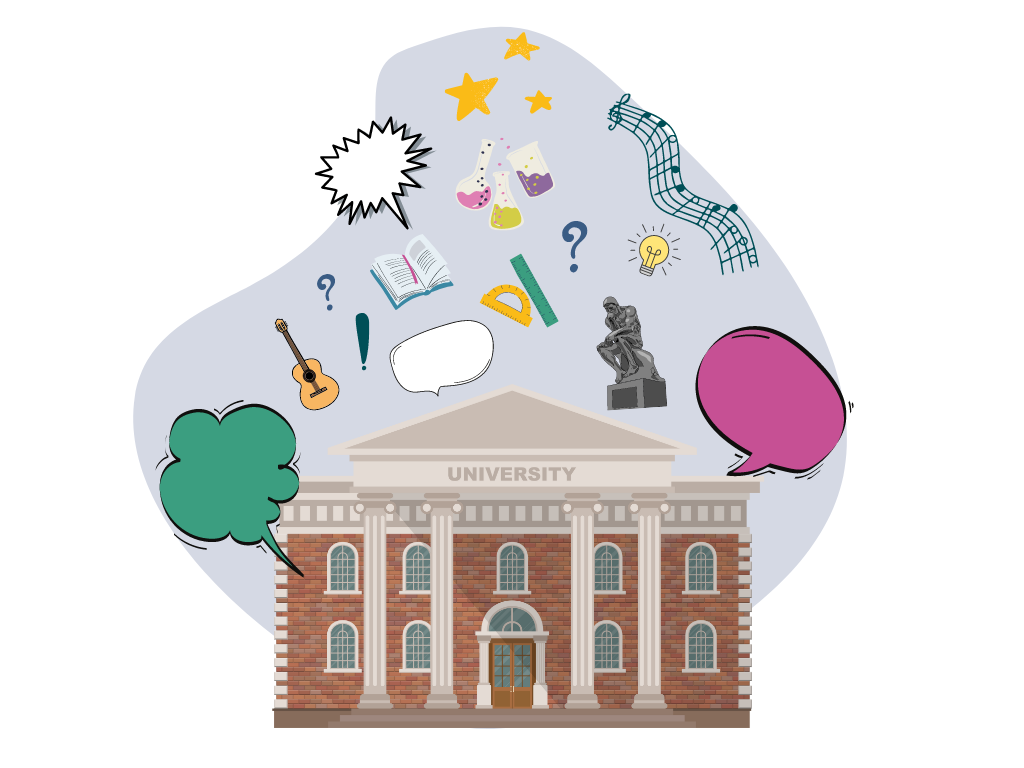 In addition to their home environment, educational institutions (primary, secondary and higher education) play a key role in supporting their pupils/ students in developing their career management skills and strengthening their informed career planning.
In addition to their home environment, educational institutions (primary, secondary and higher education) play a key role in supporting their pupils/ students in developing their career management skills and strengthening their informed career planning.
Institutions can contribute to the career readiness of pupils/ students and empower them to make a successful career choice, but it can also discourage them from planning their future career. Experiences in primary and secondary education strongly influence pupils'/ students' self-efficacy and work motivation. One of the efficient methods school staff can use to help their students develop a strong sense of efficacy includes continuous analysis of their individual characteristics, skills and abilities.
Individual characteristics, skills and abilities of pupils/ students can be compared and the so-called strengths of each pupil/ student can be identified - regardless of whether it is a student’s attitude towards work and meeting their school commitments, their general or specific knowledge, skills or interests. Pupils’/ students’ further development should be encouraged, individual progress should be rewarded, and students should be encouraged to think about how to use their own characteristics, skills and abilities in different areas of work.
What actions can educational institutions take to support the development of career management skills in pupils/ students?
- Making space for the development of the pupils’/ students’ career management skills in the school curriculum
In primary and secondary education, this is most often carried out as cross-curricular content included in all subjects, and can be combined with thematic extra-curricular workshops or activities, such as Erasmus+ school projects or mobilities which all students contribute to. It can also be supported through a special mandatory or elective subject related to the field of personal and civic education. - Building connections with the world of work
Schools can help their pupils/ students to experience the work environment and culture of a company first-hand with a field trip to a workplace. Conversely, representatives of various professions can also come to schools and organise classroom talks. Finally, in secondary schools, students can participate in different forms of work practices, apprenticeships, etc. to gain a more direct insight into the world of work. - Monitoring students’ development using student portfolios
Students can systematically collect different class materials and their own works related to their professional development, which helps them integrate the attitudes, knowledge, and skills they acquired in different subjects during their schooling. This kind of insight into their collected achievements and experiences supports students in setting realistic learning goals and achieving clarity in terms of their future career planning.
With the tools of the Europass portal, school counsellors and school staff can efficiently address the topics mentioned above, by helping students identify their skills (gained in formal, non-formal and informal school environment) and by covering the topics of job application and career orientation in class. In this way, they can teach pupils/ students to recognize their skills and experiences, and based on that, create their first job application and prepare them for the transition to working life. In addition, the Europass tools are suitable for preparing work placements abroad.
These Europass tools are suitable for use in the classroom:
- Europass profile: Europass profile offers students a secure online where they can keep track of their continuous professional development. As they participate in a new learning experience or develop a new skill, students can update their Europass profile accordingly. This will allow them to have continuous insight into their achievements and experiences developed through time, which will help them achieve clarity in terms of their future career planning.
- CV Editor: How is a CV structured? What goes into it? The Europass CV Editor is an uncomplicated way to create a meaningful CV, as it guides you step by step through the creation of a CV. The standardised template can be customised with different layouts as well as colours and fonts. This allows you to concentrate entirely on the content.
- Cover Letter Editor: The creation of suitable cover letters can also be worked on and practised using the Cover Letter Editor.
- Share Europass profile/ CV: Pupils who have already created a personal profile in the portal can easily share their draft CV with the teacher via a link in order to work out improvements together.
- Self-assessment tool for digital competences: This tool can be used to realistically assess personal competences. If the self-assessment is done e.g. at the beginning and end of a school year or before and after a stay abroad, learning progress can be reflected.
- Europass Certificate Supplement: What training occupations are there? What competences does one acquire through training and where can one work with this training? The Europass Certificate Supplements answer these questions. They provide brief descriptions of training occupations and can be used well in the context of career guidance.
- Europass Mobility: This document records skills and knowledge developed through learning stays abroad. In connection with work placements abroad during training, the Europass Mobility and opportunities offered by occupational mobility can be discussed.
Students
 French example: a workshop in high school for Post-Baccalaureate students: to work on their own competences with the goal to find an internship abroad
French example: a workshop in high school for Post-Baccalaureate students: to work on their own competences with the goal to find an internship abroad
Use with students of BTS MCO (Management, Commerce, Organisation) international section.
It is a 3-hour workshop that took place at the beginning of the school year with a group of about 15 students.
Context :
The BTS is a technical diploma in 2 years which takes place in high school after the Baccalauréat (high school certificate). The students have general subjects but also technical subjects, in this case business management, administration, commerce...
They also have two internships of at least 8 weeks to complete, one of which can take place abroad as part of the Erasmus+ programme, for example.
BTS students generally have no experience of mobility and are reluctant to do a work placement in Europe.
The work of the Euroguidance advisor, in collaboration with the class teacher, is therefore to raise the students' awareness of international mobility, to work on the obstacles to mobility and then to equip them to produce a CV and a covering letter in a European format.
The Europass platform was therefore a valuable tool in this context.
First stage: raising awareness of international issues and working on the obstacles to mobility (1h)
Three exercises were proposed to students
First exercise: Get to know each other.
Simple questions are asked of the group and the students have to position themselves on one side or the other according to the answer. There is no right or wrong answer. Answers are subjective and students should respect each other in a positive atmosphere.
Example: "Those who speak German stand to the right":
This is repeated several times, asking about languages but also about travel habits (those who have already gone abroad, those who have already gone abroad this year, those who are going to go, those who have already gone outside Europe...).
Second exercise: Brainstorming.
The students are invited to think about the advantages of mobility and what it can bring them in the short, medium or long term. In turn, each student puts forward an idea that must be different from the others. For those who like competition, the young people can be made to sit down when they run out of ideas until the last one left standing.
Tip: it is important to make a note of the ideas that have been retained so that they can be summarised and used during the rest of the workshop.
Third exercise:
The students then work in groups of 5 on the issue of obstacles to mobility and the questions that it is important to ask before leaving. They are given a set of cards on which are written sentences evoking obstacles.
The set of cards was created as a result of interviews and workshops with high school students who were encouraged to express their feelings about the obstacles to going abroad.
Example of sentences:
I am not yet 18.
I will miss my family.
I don't know where to look for accommodation...
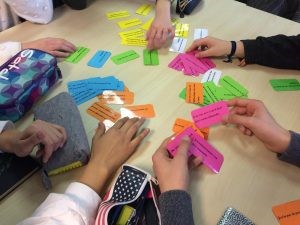
Photo of the cards
They look at these sentences and have to choose 2 or 3 each, the ones they think are the most important. Each group then explains their choices and why they chose certain phrases, the final objective being that the group retains only 5.
Each group presents the chosen obstacles, and the other groups are questioned to complete the list and to give direct suggestions for solutions to remove the obstacles.
The facilitator notes the key words on the board.
Note : The card game was created following almost 300 interviews and 5 workshops with high school students during which they worked on the obstacles to mobility and ways to overcome them.
2nd stage : Working on the Europass platform (2h)
The most important work is then done on the Europass platform.
Important tip: Pupils have already created a Europass account during a previous session with their teacher, as it can take time to receive the confirmation code by email.
The philosophy of the platform is presented: a profile from which one can create a CV and a covering letter. In addition to this, there is a library and links to training and job offers.
The profile part:
Students have little professional experience and this part can really help them to put forward everything they have already experienced, in a professional, associative, leisure or academic context.
The more traditional sections such as "Work experience" and "Education and training" invite them to fill in their activities by explaining them and not just naming them.
"Language skills" and "Digital skills" enable them to position themselves in relation to expectations and to move away from trivial and uninformative self-assessments.
This task can also be done in cooperation with language teachers.
Finally, "Hobbies and interests" encourage self-knowledge with the possibility of adding sections with proposals they would not have thought of. They often do not think that activities outside school can be valued on a CV. for example, some of them supervise young people in a sports club, practice refereeing, help with the organisation of events...
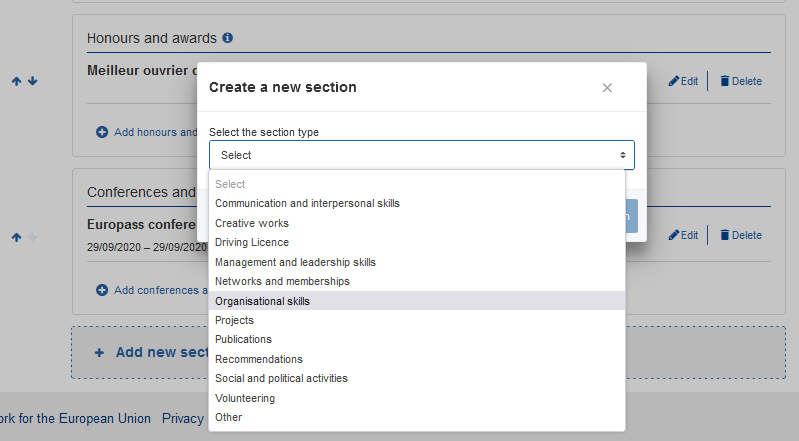
Once this work has been done in their mother tongue, it becomes easier to do it in a foreign language with the profile in different languages such as English, French, German, Spanish, Italian and so on…
The "My Skills" and "My Interests" sections
In this context, the "My Interests" section is of little interest because all students have a common goal which is to look for a work placement abroad. On the other hand, it is very interesting to show them this section for future use of the Europass platform, which could support them throughout their lives.
The "My Skills" section makes sense here with a school audience. Indeed, this tool is very interesting. It helps students to express themselves on competences. After having entered a skill, the platform proposes other skills close to it, which allows young people to extend their self-knowledge and to indicate skills that they did not even imagine as such.
Moreover, student can identify the skills that are expected in the professional world and they can match them with their own. This has a very positive and rewarding effect on the students.
A cross-fertilisation of ideas can be proposed here by having the pupils work in pairs.
This work leads them to reflect on themselves and to better understand the type of placement they want to do, in which professional environment, and in which country.
The students then use the website www.euroguidance-france.org to look in the internship section, where advice and tips are given for each Erasmus+ member country to find an internship. This work was carried out thanks to the collaboration of all the Euroguidance members in the different countries.

Brochure “Stage en Europe” photo
The CV and the cover letter
The final step of this work is to create a CV and a cover letter to apply for a traineeship in Europe.
The CV helps to guide the students, who still have little experience in this task and for some of them, it may be the first time they have attempted this type of exercise.
The structure of the CV is proposed by the platform, while retaining a certain amount of flexibility regarding the order of the headings and the headings that one wishes to see appear.
Video testimony from Laurine, a BTS student at the Carriat high school in Bourg en Bresse and a Europass user to create her CV. She says, "It's organised, it can be modified, and we are guided step by step...".
Student’s testimonial video
Guidance practitioners in higher education
 Europass is a widely applicable tool used by many different user profiles. Europass is a particularly convenient and popular tool for students in higher education when they need to apply for their first job or volunteering experiences, student practices, Erasmus+ mobilities and many more. In the following sections we are going to explain what makes Europass such a natural choice for students. Why do students need a Europass profile, CV or Cover Letter in the first place?
Europass is a widely applicable tool used by many different user profiles. Europass is a particularly convenient and popular tool for students in higher education when they need to apply for their first job or volunteering experiences, student practices, Erasmus+ mobilities and many more. In the following sections we are going to explain what makes Europass such a natural choice for students. Why do students need a Europass profile, CV or Cover Letter in the first place?
1. Europass helps students reflect on their current skills and experience
Very often, students think of CV writing mainly in terms of listing their education data and job experiences. In turn, they are often not aware that this is also a place to showcase the skills they gained in different educational and non-educational contexts.
Europass portal offers several sections where students are encouraged to analyse and reflect on their skills and interests, as well as experiences, in order to include them perfectly in their CVs and cover letters.
2. Europass helps students prepare for their European job search
By creating a Europass profile, students get a platform where they can regularly list and update their skills, experiences, and store many other documents relevant for their job search. In case a job opportunity presents itself, students can quickly and easily make a tailored job application and respond to any job ad within a few minutes.
3. Europass helps students when applying for different job, volunteering or mobility opportunities
There are many opportunities where students may need to provide their CVs. Students may be asked for a CV when they are applying for their graduate studies, research positions, student practices or student jobs, traineeships, volunteering opportunities, Erasmus+ mobilities and scholarships or grants. Europass is a CV format known and accepted by many employers in Europe. Its clear format allows employers to easily identify their candidates’ skills and experiences to see if they are the right fit for the job.
Why the Europass CV format is ideal for students
Skills, skills, skills…
For students with little or no work experience, writing a CV may seem like a difficult task. Even experienced professionals can have difficulty showcasing their employability on a CV. Of course, this challenge is much greater for students and recent graduates without an impressive work history. Europass is ideal for candidates who want to present themselves to their prospective employers in the best possible light, but still do not have considerable work experience to impress their potential employers. Therefore, they often find it difficult to think of relevant information to include in their CVs.
Even if they have little or no work experience, students can still stand out among other similar candidates by showcasing skills gained in different educational or non-educational environments. Your students may not be aware of it, but throughout their education or work experiences, it is very likely that they have also developed several skills that can apply to numerous job roles. These skills may not have only been strictly gained through a formal study or work experience, and may have also been developed in many different student jobs, volunteering experiences, etc. not necessarily related to students’ field of study.
Let your students think in depth about the activities they have been involved in during their education or student work. For instance:
- Have they worked as a brand promotor in a supermarket? Skills they have developed here are communication and presentation skills.
- Have they done a group project in a sociology class? Skills they have developed here are communication and team work.
- Created their own simple mobile app, a piece of art or music? They have creative skills.
- Studied Dutch, Croatian or another language? Even if they are not fluent, learning a language shows discipline and commitment.
- Good at interpreting research results or solving mathematical problems? They can think critically.
- Organised a study group to revise for exams? They are adept at time management and organisation.
- Let them think about their interests, hobbies, or any other activity they have been involved in. Do they play an instrument in a band? Volunteer at a retirement home? Run long races? These show they have enthusiasm, focus, dedication and discipline.
All of these, so-called, transversal skills can be easily adapted or transferred to their future job environment, and employers are well aware of that (and they take it into account in the job selection process).
Transferable skills that many employers look for include time management, teamwork, leadership, problem-solving, communication, organisation, working under pressure, enthusiasm, customer service, meeting deadlines, and many more.
The Europass profile can provide strong support for your students in describing their skills, finding interesting jobs and learning opportunities, managing applications, and creating CVs and cover letters.
What can Europass do to help?
Registered Europass users will have access to the "My Skills" tool, which helps users self-assess their skills and have a clearer idea on the jobs that match those skills. Your students will be able to identify the skills they have from the suggestions provided, or to add new skills. These skills also come with descriptions that will help them understand the related sets of skills by describing and defining them in the context of different jobs.
Registered users of Europass can also use the "My Interests" tool, which guides them in reflecting on their interests and career goals by adding topics they are interested in, where they want to work or study, and what goals they want to achieve.
Writing your first CV
Students are often first-time job seekers, which means they may not have a particularly long or thorough CV writing experience. In addition to having difficulty showcasing their skills and experience on a CV, newer job seekers can find it equally challenging to write a CV of good quality, which includes all the information to help them shine and which is in line with the CV structure desired by the prospective employer.
The Europass CV Editor allows easy, user-friendly, step-by-step CV creation. The Europass CV Editor guides all users through all the main CV sections, such as About me, Work experience, Education and training, various skills categories, etc. Different sections of the CV can be rearranged and organised in any way a user wishes by dragging-and-dropping whole sections or subsections of the CV.
While job seekers with several years of experience will highlight their work accomplishments, newer job seekers can put more focus on education and non-work experience sections of the CV.
Lastly, students can often focus too much on making sure that the content is right, that they will forget the obvious fact that „Presentation is everything“ - their CV also needs to look good as well as sound good. Research shows that the average length of time spent by an employer reading any applicant's CV is approx. 10 seconds. If we have such a short time to hold the reader’s attention, we need to make an immediate impact.
When making their CVs in Europass, students can choose between four attractive CV templates, which will present all the information in a clear and structured way and make it easy for employers to quickly scan for different pieces of information in the CV, and to make their selection.
For a guided presentation on how to write a Europass CV or Cover Letter, please consult this document: CV_cover_letter_e-course.pptx.
Employers
 Find employees with Europass
Find employees with Europass
Recruiting in the modern job market comes with many challenges. In addition to the common struggle to find the right candidates for their vacancies or to attract talent with hard-to-find skills who are often receiving several job offers at the same time, employers often need to conduct their hiring process as fast and as efficiently as possible, because vacant positions cost money and delay the implementation of day-to-day activities.
Europass can be a useful tool in helping employers create a more efficient recruitment process. Hiring teams need to communicate fast and evaluate candidates easily and efficiently. We know that recruiters often spend less than 10 seconds to scan each CV and unless the CV catches their attention by clearly demonstrating the candidate’s strengths and the benefits they can bring to the company, it will most likely end up being disregarded.
In addition to challenges mentioned above, the shortage of skilled workers and demographic change pose another set of challenges for recruiters and HR managers in companies and organisations. More and more often, suitable employees cannot be found on the domestic market. But how can potential applicants from abroad be approached? How can the skills and qualifications of applicants be traced in international applications; how can applications be compared in a time-saving manner and how can suitable employees be identified? Is it possible to align recruitment processes more closely with the needs of job seekers and make them easier?
So, why should employers insist that their applicants apply for their vacancies using a Europass CV or profile?
- Employers can receive structured CVs: With the Europass profile or a CV created from it, employers receive structured information about applicants. This allows them to reliably assess their skills and qualifications and quickly see what skilled workers have to offer.
- Employers can compare CVs easily: Clearly designed CVs offer good readability and a high degree of transparency, especially when recruiting internationally. This is because the requirements and expectations for a formally correct CV are not the same in all EU countries. For applicant selection, this means that the sifting of applications and the pre-selection of qualified candidates from home and abroad is made much easier.
- Employers can receive a link to a profile to gain a first impression: Applicants can send employers a link to their profile via the portal so that they can get a first impression without bureaucracy and identify suitable candidates more easily.
- Recruiting skilled workers from home and abroad: By linking Europass to the European job portal EURES, employers can target Europass users with a job offer.